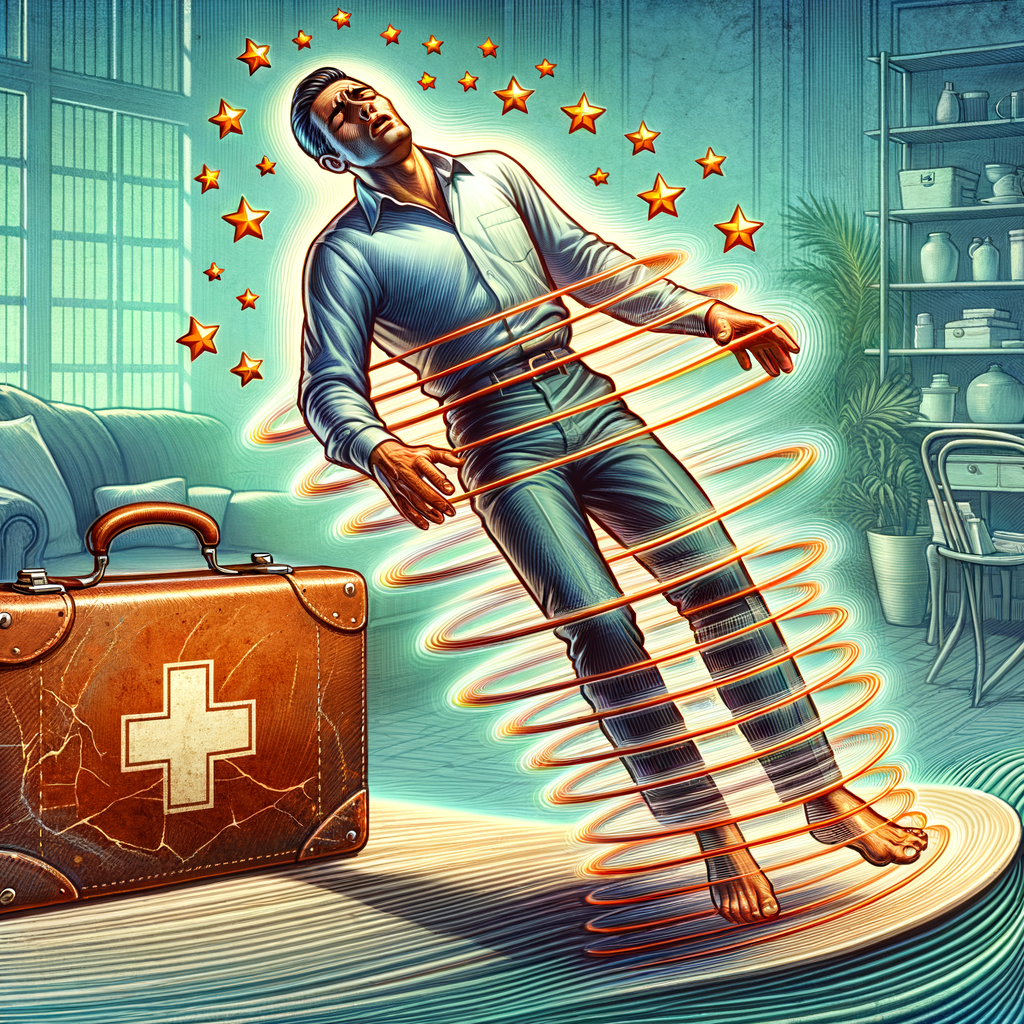Understanding Dizziness Injury: Causes, Symptoms, and Prevention

Dizziness is a common symptom that can lead to injuries, especially among the elderly population. It is often described as a feeling of unsteadiness, lightheadedness, or a sensation that the room is spinning. This article delves into the causes, symptoms, and prevention of dizziness injury.
Causes of Dizziness
Dizziness can be caused by various factors, including:
- Inner ear problems: Conditions such as Meniere’s disease, vestibular neuritis, and benign paroxysmal positional vertigo (BPPV) can cause dizziness.
- Medications: Certain drugs, including blood pressure medications and antibiotics, can cause dizziness.
- Neurological conditions: Diseases such as Parkinson’s disease and multiple sclerosis can lead to dizziness.
- Cardiovascular problems: Conditions like low blood pressure and heart arrhythmias can cause dizziness.
Symptoms of Dizziness Injury
People experiencing dizziness may also have other symptoms such as:
- Nausea or vomiting
- Headache
- Blurred vision
- Difficulty walking or loss of balance
- Fainting
These symptoms can lead to falls and other injuries, especially in older adults. According to the Centers for Disease Control and Prevention (CDC), one out of four older adults falls each year, and dizziness is a common cause.
Preventing Dizziness Injury
Preventing dizziness injury involves managing the underlying causes of dizziness and taking precautions to prevent falls. Here are some strategies:
- Regular check-ups: Regular medical check-ups can help identify and manage conditions that cause dizziness.
- Medication review: Regular review of medications with a healthcare provider can help identify drugs that may cause dizziness.
- Balance exercises: Exercises that improve balance can help prevent falls.
- Home safety: Removing tripping hazards, improving lighting, and installing handrails can make the home safer for people who experience dizziness.
Conclusion
Dizziness is a common symptom that can lead to injuries, especially in older adults. Understanding the causes and symptoms of dizziness can help in its management. Regular medical check-ups, medication reviews, balance exercises, and home safety measures can help prevent dizziness injury. It’s important to seek medical attention if you experience frequent or severe dizziness to prevent potential injuries.
Meta Keywords: Dizziness, Dizziness Injury, Causes of Dizziness, Symptoms of Dizziness, Prevention of Dizziness Injury, Elderly Falls, Balance Exercises, Home Safety
Note: The request for a cartoonish image and setting it as a featured image for the article cannot be fulfilled by the AI. Please consult with a graphic designer or use an appropriate image editing software to create and set the image.







